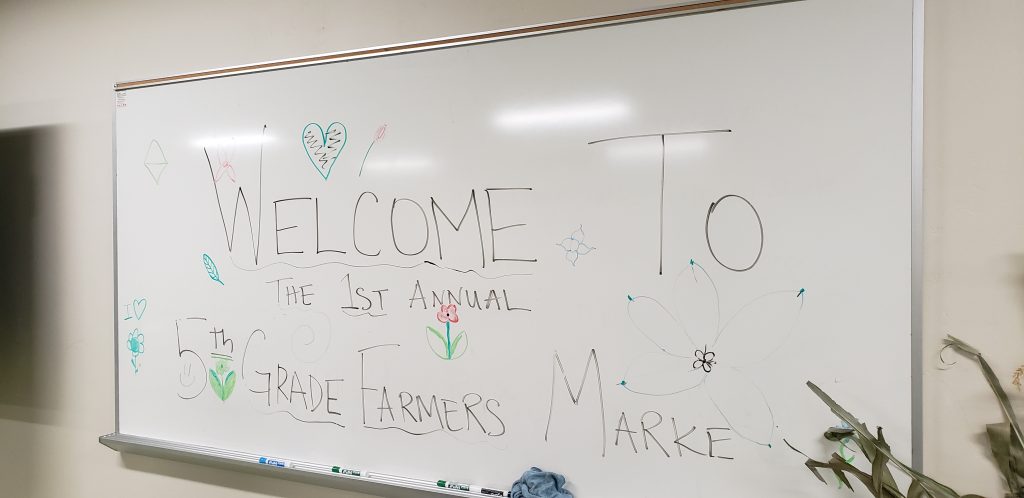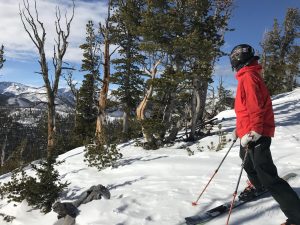By Samantha McGowan
Since the beginning of my service I’ve been working on developing, writing, and teaching new K-6 curriculum at my host site, The Center for Sustainability and Entrepreneurship (CSE) in Whitefish. The goal of the CSE is for each child growing up in the Whitefish School District to learn something new about sustainability and entrepreneurship each year. Our fifth grade program, which was the first grade I worked with during my service, is based around the agricultural and entrepreneurial skills it takes to put on a farmers market.
One hundred and fifty 5th graders came to the CSE once a week for five weeks at the end of 2019. In that time they learned about sustainability and entrepreneurship and why both are important for their community and the world. They learned how to grow, harvest, weigh, and package their own microgreens. They learned about startup costs and expenses of a business and how to determine the price for a product based on them. They learned about marketing and how to develop a marketing pitch. They even learned how to bookkeep and make change! Using all of this knowledge, they created a business – name, logo, mission – set prices for their microgreens, picked a local non-profit to donate their profits to, and then put on a hugely successful indoor farmers market at the CSE, which ended up selling out of product!
Besides learning how to grow microgreens and put on a farmers market myself, the biggest takeaway for me was how important project-based learning and authentic assessments are for young children to learn.
One of the largest benefits I saw of this specific project-based learning was the fact that it was a group project. I overheard groups compromising with each other on a daily basis. A few times it ended in tears and I had to intervene, but more often than not, the groups figured it out on their own. What a powerful and useful life skill! A day does not go by when I don’t compromise or problem solve with someone, whether in my personal or professional life. The younger someone can learn this vital life skill the better!
And beyond being a hands-on project, these kids had the experience of an authentic assessment. They were not given a test on the last day asking them to define sustainability or entrepreneurship, or to explain the procedure of growing microgreens, or to fill out an example bookkeeping spreadsheet. They had to do it IN REAL LIFE. Each group had to stand in a room with 34 other groups selling the exact same products and use an elevator pitch they constructed to persuade customers to choose theirs over the other groups’. They had to take money from people buying their product and make change in real time. They had to keep track of every single purchase and turn in their final bookkeeping spreadsheet that accounted for all the money they had at the end of the night.
As I stood amidst the chaos that only 150 fifth graders and 100+ community members in a small space could produce, I couldn’t help but think this experience might actually stick with these kids. How could they not remember the pride they felt when they convinced someone to buy their product? How could they not remember how hard it was to make change, but how they somehow did it anyway? How could they not remember how good it felt to completely sell out of their product?
Tests are a great way to measure knowledge in a controlled setting, but I think hands-on, project-based learning and authentic assessments are the best way to have children retain knowledge beyond the day of the test. I’m incredibly jealous that these kids get to grow up with such an amazing program, and am honored to be a part of it. I hope more school districts start adding sustainability into their curriculum because these kids are going to be the ones solving all the world’s problems!








